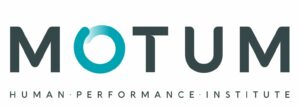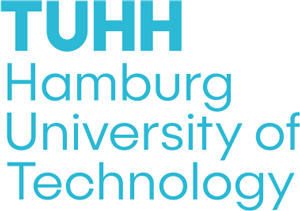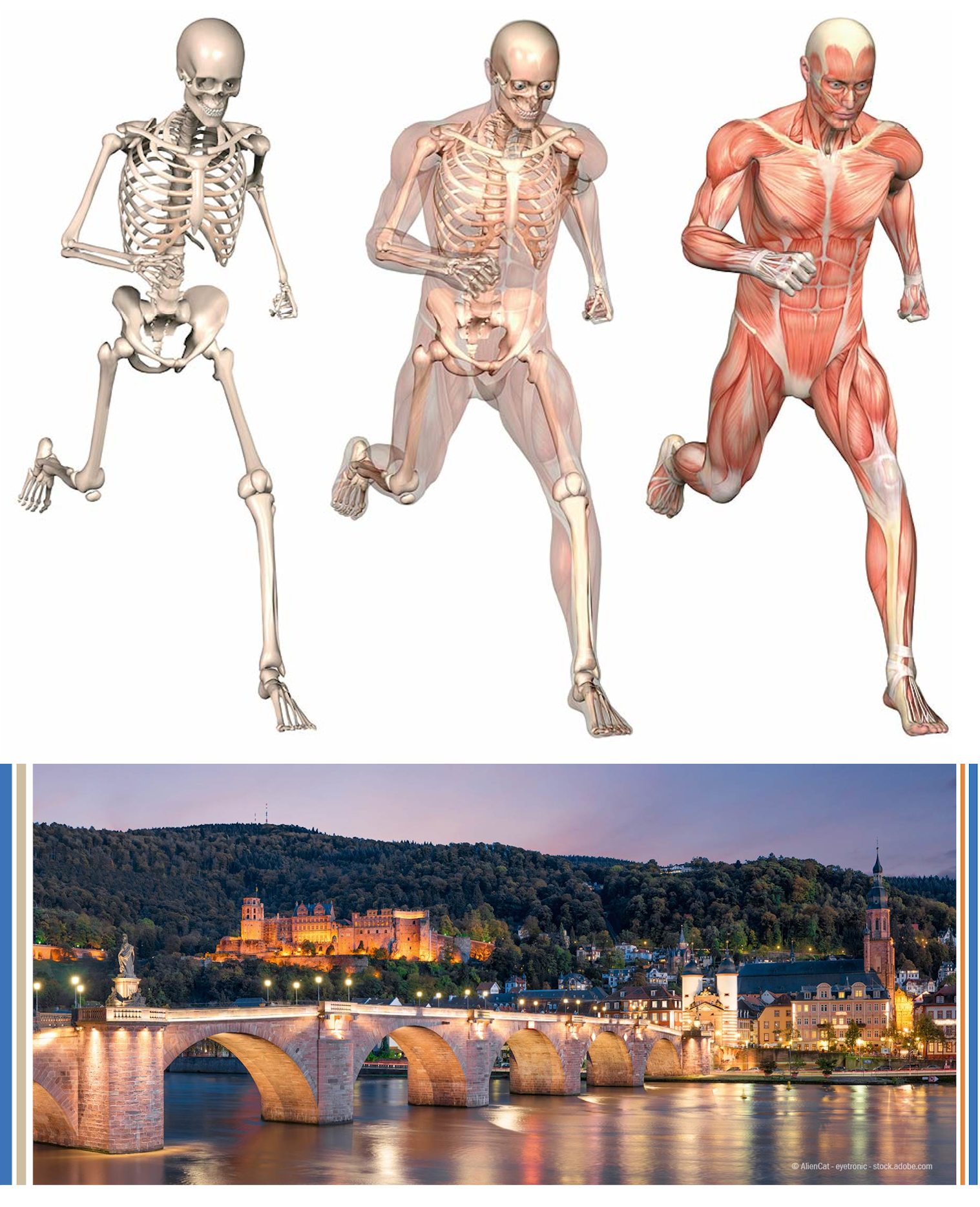Home » Articles posted by Marianne Hollensteiner
Author Archives: Marianne Hollensteiner
PhD position (65%, 2 years) at the interface of computational and experimental muscle physiology/biomechanics
PhD position (65%, 2 years) at the interface of computational and experimental muscle physiology/biomechanics
As part of a project “Development and validation of a failure model of the healthy porcine intestine” funded by the German Research Foundation, a doctoral position is to be filled at the Institute for Sport and Movement Science (University of Stuttgart) in the Department of Movement and Exercise Science. The position (TVL E13 65%) is limited to 2 years. A project extension as part of a continuation application is envisaged.
Gastrointestinal perforations (GIP) lead to high mortality, especially when diagnosed and treated late. Since neither experimental studies nor numerical models are available to describe GIP, the underlying mechanics are largely unknown. This research project, therefore, aims to understand the basic mechanical processes that occur during GIP for the first time through layer-specific experiments on intestinal wall tissue and to describe and predict them using a numerical three-dimensional model. In this sub-project, experimental data for the characterization of the tearing behavior of multi-layered biological tissue are to be collected. The data are an important prerequisite for developing organ models to describe gastrointestinal perforations of diseased or damaged tissue under physiological stress situations.
Required Qualifications:
- applicants should be highly motivated and should have an excellent MSc in movement science, kinesiology, biology/physiology, neurophysiology, physics/biophysics or a related field
- high interest in neuromuscular mechanisms and biomechanics
- communication-, team- and good English language skills
The environment in Stuttgart enables particularly close cooperation with an interdisciplinary team of sports scientists, biologists, physicists and engineers. Women are specifically invited to apply. The University of Stuttgart further aims to hire more people with disability and also encourages them to apply for research positions.
Please submit your detailed application in PDF format by email to Sybille Kegreiß.
Prof. Dr. Tobias Siebert
University of Stuttgart
Motion and Exercise Science
Allmandring 28
70569 Stuttgart
Germany
PhD in Sport, Health and Well-being
PhD in Sport, Health and Well-being
The Biomechanics group at the University of Bologna employs four open fully-funded PhD positions in biomechanics. All the positions are within the PhD program in Health and Technology, a highly interdisciplinary program which includes supervisors from the different domains. The call includes 14 positions including four projects in the field of Biomechanics:
- #2 Towards digital diagnosis: models for the evaluation of the intervertebral disc (supervisor: prof. Luca Cristofolini)
- #3. Prevention of vertebral fractures: digital diagnosis and computational modelling of vertebrae affected by metastasis (supervisor: prof. Luca Cristofolini)
- #4 Digital twins to prevent the risk of joint replacement failure in patients affected by neurodegenerative disorders (supervisor: prof. Marco Viceconti)
- #5 Digital twins informed by wearable sensors to predict joint loads in the real world (supervisor: prof. Marco Viceconti)
Research topics
The PhD Programme’s distinctive topic is the relationship between sport, health and well-being in its unitary complexity. Such relationship defines a research field with both a strongly cohesive content and an intrinsic openness to multi-and inter-disciplinary approaches. This general theme is articulated in the following three areas:
- Physical activity, nutrition and drugs for well-being promotion and health protection: determinants and benefits of a healthy lifestyle; exercise for special populations; research and development of drugs for health protection; biomarkers’ analysis for monitoring the well-being status; metabolism and nutrition.
- Sport performance: multi- and inter-disciplinary investigation of the factors determining human performance in sport and other activities that push humans to the limits of their physical and mental capacity; analysis, development and learning of sports techniques; monitoring and optimization of the training process; preparation for sports competitions.
- Sport as a means to education and sustainable development: analysis of the values conveyed by sport to promote social inclusion, environmental sustainability, and global citizenship; teaching and learning of culture in childhood, in relation to movement and the human body; good practices for starting and practicing grassroot sports; education to the factors of individual and social well-being in the current reality; role of the context in promoting human development.
The various research topics will be developed by stressing those “soft-skills” components that allow to locate rigorous disciplinary investigations exactly into the horizon where, today, extremely useful answers for the promotion of sport, health, and well-being can emerge.
Job opportunities and potential areas of employmentJob opportunities are primarily related to both the University’s research and/or public and private institutions (national and international) related to exercise and sport sciences, pharmaceutical sciences, nutrition sciences, education and pedagogical sciences. Other potential areas of employment may be consultancy, planning and partnerships, related to research activities mentioned above, in the fields of: pharmaceutical and nutritional sciences; sport practice for prevention, reeducation, and training; planning and management of sport and physical activity; high-level competitive sport (coach, athletic trainer, sport scientist, scout, and analyst); formal and informal education (teaching and learning, Continuing Professional Development training).
Please find more details here:
PhD details – Sport, Health and Well-being — University of Bologna (unibo.it)
Call for Applications:
PhD Programme Table:
Application deadline:
Jun 20, 2023 at 11:59 PM
Doctoral programme start date:
Nov 01, 2023
Contacts:
CARMELA FIMOGNARI
Dipartimento di Scienze per la Qualità della Vita – QUVI
Address: Corso D’Augusto 237 Rimini (RN)
E-mail: carmela.fimognari@unibo.it
Telephone: +39 0541 434 658
PhD student / Research associate (m/f/d)
The Clinic of Internal Medicine 3 – Rheumatology & Immunology, University Hospital and Friedrich-Alexander-Universität Erlangen-Nürnberg (FAU) in Germany invites applications for a
PhD position in life sciences / biology (Dr.rer.biol.hum.)
This position is assigned to the research group of Musculoskeletal Function and Mechanobiology (PD Dr. Anna-Maria Liphardt). Research in this study group focuses on the role of musculoskeletal function in patient cohorts and healthy individuals. We have a special interest in the role of immobility for musculoskeletal health, which we investigate in space flight related studies. We have national and international cooperation partners in academics and industry
Topic:
The project will focus on characterizing the musculoskeletal response of the human body to immobilization in bed rest, with a special focus on joint health.
- collect and analyze research data (biomarker, imaging, life style, musculoskeletal function)
- develop methods for an integrative data analysis of the newly acquired data
The main focus will be on a two 60-days bed rest studies, which is being conducted at different locations in the EU/US, funded by the European Space Agency and the German Aerospace Centre
We are looking for a
- highly motivated creative doctoral candidate,
- capable of working in an interdisciplinary team,
- with an above-average master or comparable university qualification in sport/movement science, kinesiology, physiology, bio-/medical engineering, sports technology, biotechnology, life sciences, space life sciences, or similar fields
- high interest in statistical methods,
- scientific writing and
- be willing to travel frequently (within Europe and to the US).
Additionally advantageous
The candidate must have a
- strong knowledge of musculoskeletal function, biostatistics and human movement & physiology and
- interest in space physiology.
- English language skills should allow for barrier free written and oral communication in English with international partners.
We offer
- PhD student position
- interdisciplinary research team
- national and international collaborations
- participation in an international space science research project
- possibilities to join graduate schools, early career programs (e.g. Ariadne Med)
- benefit from FAU graduate center
Apply here: https://recruitingapp-5531.de.umantis.com/Vacancies/5199/Application/New/1
POSTDOC WITH FOCUS ON INJURY PREVENTION IN A RETURN-TO-SPORT CONTEXT
UMIT TIROL – Private University of Health Sciences and Technology GmbH is recruiting for the further development of the Research Unit for Orthopaedic Sports Medicine and Injury Prevention at the Institute for Sports Medicine, Alpine Medicine and Health Tourism and Injury Prevention of the Department of Psychology and Sports Medicine as of the next possible date in the following full-time position with an initial 3-year fixed-term employment contract with the option of extension:
POSTDOC WITH FOCUS ON INJURY PREVENTION IN A RETURN-TO-SPORT CONTEXT
The focus of this position is on the biomechanical evaluation and further development of sports-specific virtual reality (VR) and mixed reality (MR) applications for orthopaedic (sports-)injuries. With the help of VR and MR applications, the interface between therapy and return-to-sport will be improved and their potential for sport-specific performance diagnostics evaluated.
- Your main tasks:
▪ Acquisition, management and implementation of research projects within the framework of the research topic described above in close cooperation with the biomechanical measurement laboratory MOTUM – Human Performance Institute
▪ Participation in and management of courses at UMIT TIROL
▪ Supervision of students and doctoral candidates, especially on topics of sports medicine and injury prevention
▪ Supervision of students’ scientific theses
▪ Participation in university self-administration - Required qualifications:
▪ PhD in sports science, biomechanics, medical technology, human medicine, health sciences or comparable subjects with clear reference to sports medicine and injury prevention.
▪ Experience with biomechanical measurement methods (e.g. 3D motion capture, EMG, IMU, kinetics) and evaluation procedures in a clinical or applied sports science context
▪ International publication activity
▪ Interest in VR and MR applications
▪ Programming skills (Matlab, Python or similar)
▪ German and English language skills, both written and spoken
▪ Interest in working in an interdisciplinary team
▪ Experience in university teaching and in supervising academic theses desirable
The gross annual salary for this position is EUR 56,000.
UMIT TIROL values diversity and therefore welcomes all applications – regardless of gender, nationality, ethnic and social origin, religion, world view, disability, age, sexual orientation and identity. The university is also committed to promoting women in science and therefore expressly encourages qualified women to apply.
Interested applicants are kindly requested to send their relevant documents (letter of motivation, curriculum vitae, complete references) electronically by 19.03.2023 to Dr. Gerda Strutzenberger at office@motum.at; Subject: Postdoc Return-to-Sport
UMIT TIROL – Private University of Health Sciences and Technology GmbH, Eduard-Wallnöfer-Zentrum 1, 6060 Hall in Tirol, Austria, T +43-50-8648-3866
Employee for human motion analysis laboratory
Employee for human motion analysis laboratory
We are a biomechanical motion analysis laboratory with a focus on orthopedic and sport-specific applications. As such we are looking for enthusiastic employees to support us in the daily testing and analysis process. MOTUM is equipped with high-end biomechanical movement analysis systems on 5 measure locations:
- 2 motion capture areas with infrared cameras (Qualisys), including force plates, speed court and LED video wall for e.g.
- pre-injury screening
- return to activity & sport testing
- motion analysis for various movement techniques
- golf swing analysis
- mixed and virtual reality applications
- 1 indoor running track instrumented with Optogait
- 1 treadmill, instrumented with a pressure plate
- 1 Isokinetic machine
In practice and research, we deal with the topics of movement and technique analysis in clinical and sports-specific applications. Our current focus is on golf, football and running in order to answer questions with respect to
- injury prevention and sports orthopaedics
- return-to-activity & sports processes
- product development: Human-technology interface
- product development: Serious gaming with mixed and virtual reality applications.
You have a broad interest in sport-specific as well as clinical movement analysis and want to actively participate in the daily data-collection and data-analysis routines in the above-mentioned areas? Of special attention is our indoor golf swing analyses area, for which we will need active support.
Requirements
- Completed university degree (M.Sc. diploma) in the fields of sports science (focus on biomechanics/training science), health sciences and technology, medical technology, medical informatics, or a closely related field
- Profund biomechanical understanding and experience with measurement methods: 3D motion capture, EMG, IMU, force diagnostics, and/or pressure/force plates
- knowledge of golf and the specific movement processes involved
- good German and English language skills
- Ability to work in a team, enjoy working with clients (athletes, patients, study participants)
- Ability to work independently
- Programming skills (e.g. MATLAB, Pyhton, OpenSim) advantageous
We offer you a 100% position in a state-of-the-art working environment with unique laboratory equipment, the opportunity to work with internationally renowned experts and to help shape the work processes of our newly built lab. We pay according to the Austrian collective contract for sport scientist with the possibility to overbid depending on professional experience and qualification.
Begin of position: 1.3.2023 or sooner.
Please send your application in German or English including CV and motivation letter to Mag. Gerald Schwaninger (office@motum.at) until the 15.02.2023. In case you have any questions about the content of this position please contact Dr. Gerda Strutzenberger (strutzenberger@motum.at).
Employee for golf laboratory
Employee for golf laboratory
You want to perform biomechanical golf analysis at the highest level?
We are a biomechanical motion analysis laboratory with a special focus on golf and it’s application in practice and research. As such we perform golf swing analysis and investigate the golf club & player interaction.
Our goal is to establish MOTUM as a top laboratory for golf-specific analysis and research questions. For this responsible position we are looking for a golf expert with profound knowledge in golf and it’s sport-specific motion analysis.
Requirements
- Completed academic degree (M.Sc. degree) in the fields of sports science (focus on biomechanics/exercise science), health sciences and health technology or a closely related field
- Biomechanical understanding and experience in 3D motion capture systems
- Golf knowledge and the specific motion sequences involved
- Languages: English, German beneficial
- Ability to work in a team, professional and competent interaction with clients (athletes, patients, coaches)
- Independent and self-responsible work with the continuous development of the golf laboratory in mind.
We offer
- Instrumented golf laboratory in the setting of a biomechanical competence center
- 3D Motion Capture System (Qualisys) including force plates, EMG and IMU sensors
- Trackman
- Interdisciplinary work with a team of sports scientists, physicians, physiotherapists and trainers
- Co-design of work processes and procedures
- Full time position 100%
Begin of position: 1.3.2023 or earlier
Please send your application including CV and motivation letter to Mag. Gerald Schwaninger (office@motum.at) until the 15.02.2023. In case you have any questions about the content of this position please contact Dr. Gerda Strutzenberger (strutzenberger@motum.at).
Professorship (W3) in the field of Biomechanics
Hamburg University of Technology invites applications for the following position in the School of Mechanical Engineering.
Professorship (W3) in the field of Biomechanics
Ref. No. P2301
We are looking for an engineering-minded individual with a strong research profile and sound methodological knowledge in one or more of the following areas:
- Computational and experimental biomechanics of biomedical materials and the human musculoskeletal system
- Digitalisation of biomechanics, e.g., integrating sensors and advanced sensing
- Preclinical experimental testing and failure analysis
- Endoprostheses and implants with a focus on new designs, biocompatibility and new materials
Close cooperation with other research institutes at TUHH and particularly within the research center ‘medical technology and biomechanics’ and with a focus on material science and cyber-physical systems is expected. The applicant is expected to take over the subject-specific lectures in the BSc AIW (specialisation MedIng) and MSc MedIng and the coordination and further development of the MedIng program with the partner of TUHH, UKE and the wider Hamburg metropolitan area.
The professorship commences in the summer semester 2024.
The deadline for applications is 2 February 2023.
The Hamburg University of Technology is an equal opportunity employer and particularly welcomes and encourages applications from women. Woman are underrepresented among professors at the TUHH. They will therefore be given preferential consideration in the case of equivalent qualifications. Applications by disabled persons with equal qualifications will be given preference.
You can submit your application (including CV, a list of publications, relevant certificates and a brief overview of research activities and teaching experience) in German or English via our application portal. To access the application portal, click on “Open Positions” at www.tuhh.de/faculty-recruiting.
For questions, please contact the Vice President of Research, Prof. Dr.-lng. Irina Smirnova,
via e-mail berufungen@tuhh.de
Please note that the specification of professors’ responsibilities is subject to review at regular intervals in accordance with Section 12 (7) of the Hamburg Higher Education Act (HmbHG). The hiring requirements according to Section 15 HmbHG in combination with Section 14 (4) HmbHG apply.
PostDoc with focus on Injury Prevention in a Return-to-Sport-context
UMIT TIROL – Private University of Health Sciences and Technology GmbH is recruiting for the further development of the Research Unit for Orthopaedic Sports Medicine and Injury Prevention at the Institute for Sports Medicine, Alpine Medicine and Health
Tourism and Injury Prevention of the Department of Psychology and Sports Medicine as of the next possible date in the following full-time position with an initial 3-year fixed-term employment contract with the option of extension:
POSTDOC WITH FOCUS ON INJURY PREVENTION IN A RETURN-TO-SPORT CONTEXT
The focus of this position is on the biomechanical evaluation and further development of sports-specific virtual reality (VR) and mixed reality (MR) applications for orthopaedic (sports-)injuries. With the help of VR and MR applications, the interface between therapy and return-to-sport will be improved and their potential for sport-specific performance diagnostics evaluated.
Your main tasks:
- Acquisition, management and implementation of research projects within the framework of the research topic described above in close cooperation with the biomechanical measurement laboratory MOTUM – Human Performance Institute
- Participation in and management of courses at UMIT TIROL
- Supervision of students and doctoral candidates, especially on topics of sports medicine and injury prevention
- Supervision of students’ scientific theses
- Participation in university self-administration
Required qualifications:
- PhD in sports science, biomechanics, medical technology, human medicine, health sciences or comparable subjects with clear reference to sports medicine and injury prevention.
- Experience with biomechanical measurement methods (e.g. 3D motion capture, EMG, IMU, kinetics) and evaluation procedures in a clinical or applied sports science context
- International publication activity
- Interest in VR and MR applications
- Programming skills (Matlab, Python or similar)
- German and English language skills, both written and spoken
- Interest in working in an interdisciplinary team
- Experience in university teaching and in supervising academic theses desirable
The gross annual salary for this position is EUR 56,000.
UMIT TIROL values diversity and therefore welcomes all applications – regardless of gender, nationality, ethnic and social origin, religion, world view, disability, age, sexual orientation and identity. The university is also committed to promoting women in science
and therefore expressly encourages qualified women to apply. Interested applicants are kindly requested to send their relevant documents (letter of motivation, curriculum vitae, complete references)
electronically by 16.12.2022 to Mr Schwaninger at office@motum.at; Subject: Postdoc Return-to-Sport
UMIT TIROL – Private University of Health Sciences and Technology GmbH,
Eduard-Wallnöfer-Zentrum 1, 6060 Hall in Tirol, Austria, T +43-50-8648-3866












